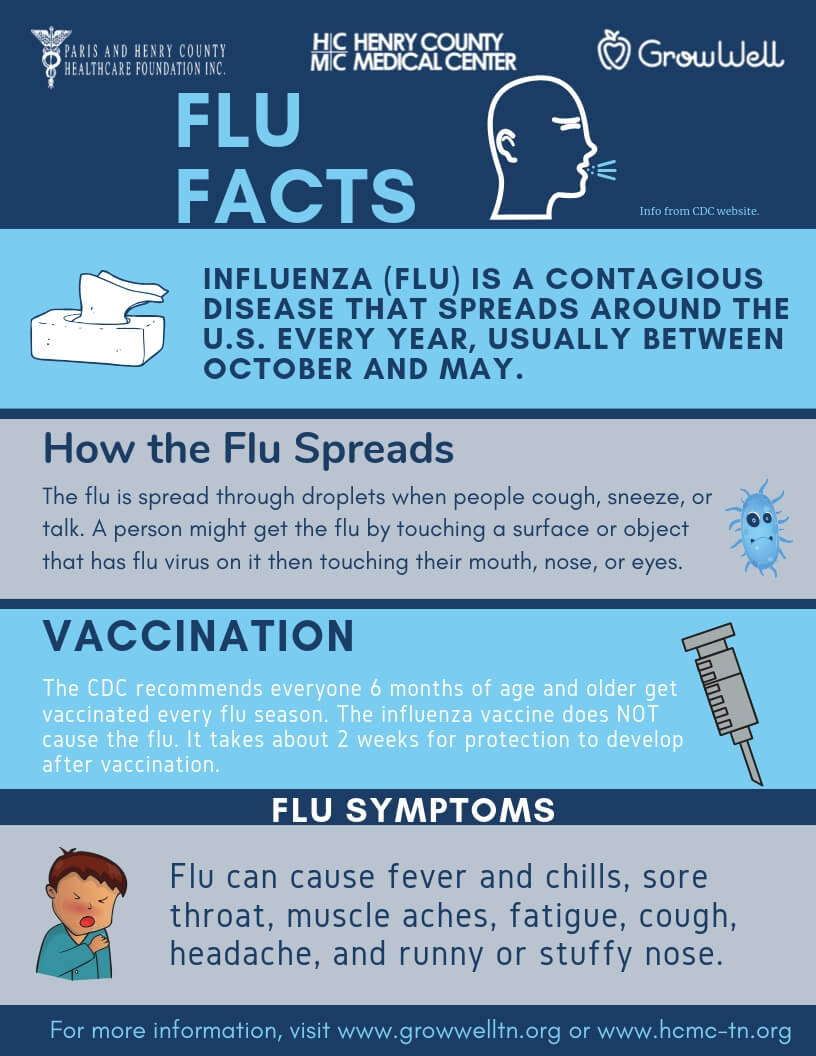
We have been fighting a global pandemic since the beginning of the year and now we are heading into the winter months, where illnesses seem to flourish as people are forced indoors. Flu season is here and we have to be extra cautious this year, more than ever, since we are in the middle of a pandemic as well. The flu kills thousands of people each year in the United States, but fortunately, we have a vaccine to help prevent it.
Flu vaccines reduce the risk of flu illness, hospitalizations and death. The flu vaccine prevents millions of illnesses and flu-related doctor’s visits each year. According to the Centers for Disease Control (CDC), during 2018-2019, the flu vaccine prevented an estimated 4.4 million influenza illnesses, 2.3 million influenza-associated doctor’s visits, 58,000 influenza-associated hospitalizations, and 3,500 deaths. These statistics are quite powerful, especially when you take into consideration the current state of healthcare in the United States, where most hospitals are already overwhelmed with COVID-19 patients.
Most experts agree that a flu vaccine is imperative this year. Not only will it significantly decrease your chances of getting the flu, it will also likely mean a milder case of the flu if you do get it. Experts are also worried about how your body will handle it if you were to get the flu and COVID-19 at the same time or one after the other. It could place a greater strain on your body and may be harder on your respiratory health as well as your overall ability to recover.
Another thing to consider is that the flu and COVID-19 have very similar symptoms. It will be hard for healthcare providers to distinguish between the two, which will mean that most people will need to have a COVID-19 test and quarantine until the results are back.
The CDC recommends the flu vaccine for anyone six months of age and over, except for people with certain conditions. There are many excuses and myths that people believe that keep them from getting the flu vaccine. Some people believe that the flu shot causes the flu, which is impossible, since the shot is made from an inactivated virus that cannot transmit infection. A low-grade temperature may follow in some cases, but this is the body’s immune response to the vaccine, which means you are building up antibodies. It also takes a minimum of two weeks to build up immunity, so if you are infected the first two weeks after you receive your vaccine, you may not be protected.
Two more common myths are that flu shots are not safe or they don’t work. Serious problems from the flu vaccine are very rare. The shots cover the most prevalent strains of the flu, so illness is still possible if you are infected with a different strain; however, most vaccinated people report milder cases.
September and October are prime months for flu vaccinations, but if you have not been vaccinated yet it’s not too late! Flu vaccinations are available at most providers’ offices and pharmacies. Insurance usually covers the cost, but contact your insurance provider to be sure. If you do not have insurance, you can self-pay to get the shot, which usually runs around $25-$45. Call around to get the best price. If you have any questions about the flu or flu vaccine, please contact your healthcare provider or the Henry County Medical Center Findline at 731-644-3463.









